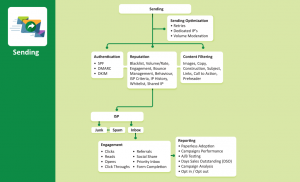— June 29, 2017

theglassdesk / Pixabay
When it comes business websites, content is king. One of the most cost-effective ways for a small business to add useful content is through a blog. The more often you can post a relevant, authoritative blog, the more you’ll get out of it. Here are some pros and cons of including blogs on your website:
Pros
Establish authority:
Marketing a product or service on the Internet is essential if you want to sell to the widest possible audience. A business blog educates consumers about your offering and the industry in which you operate. Your blog also showcases your talent and authority, giving readers the confidence to buy what you’re selling. Google bestows a higher Page Rank and better search results on websites that constantly offer authoritative, unique content, and there is no better way to create content than through a daily blog. A good blog generates new readers, who then become leads and (hopefully) customers.
Industry-Specific Marketing:
While blogging can help any company, it is especially useful in certain industries such as hospitality. For example, you can use your blogs to establish communication with potential travelers who are looking for, say, a nice place to stay in your community. If you blog about the local sites and events, travelers will come to rely on your information and will be more likely book their rooms with you when staying in your city.
Search Engine Optimization:
Fresh blogs can help get you on Page One of search engine results for your chosen keywords. Blogs should revolve around a cluster of search keywords. Your marketing effort should therefore expend some resources to ascertain the optimal keywords for your business. Online tools and SEO sites can help you with this task. For example, you can use tools like Google Keyword Tool to help you decide on the exact keywords and keyphrases to use on your website Frequent blogs that concentrate on your selected keywords can help enhance your marketing effort by:
- raising brand awareness
- solving customer problems
- exhibiting thought leadership
- establishing authority and trust
By peppering your blog posts with the appropriate keywords, you help improve your results when people search using those keywords.
Social Issues:
Sometimes, you blog not only to market an offering, but to express your opinions on social issues. Your blog and the responses it elicits can act as a forum for you and others to express their thoughts on the interesting and important issues of our times. By combining your blogging with social media such as Facebook and Twitter, you have a great opportunity to reach many people who share (or disagree with) your point of view.
Cons
Resources:
Like most worthwhile things, blogging requires you to commit resources such as time and money. Adding blogs to a website is easy and costs little, but creating good blogs is a talent that needs financial support. For example, you are diverting resources if your employees take time out of their busy days to wrote posts. The other route is to hire a professional freelance writer to create your blog posts. While not overly expensive, you should seek out the best writers with the finest reputations.
Risk:
A poorly prepared blog is worse than no blog at all. A blog is meant to establish your competence and authority, but you’ll achieve the opposite effect if your blog is poor. Some signs of a deficient blog concern:
- Poor grammar and syntax
- Improper, off-topic or otherwise unsuitable material
- Use of too much jargon
- Bad or poorly expressed ideas
Clearly, the benefits of blogging greatly overwhelm its drawbacks, especially if you have the resources to write good, effective blogs. Whether timely or evergreen, good blogs deliver benefits that far outweigh their costs.
Are you ready to budget for a blog? Start with the Business Budget Smart Sheet. This resource can help you make sense of tracking and spending, to help you forecast for the future.
Digital & Social Articles on Business 2 Community
(108)
Report Post








